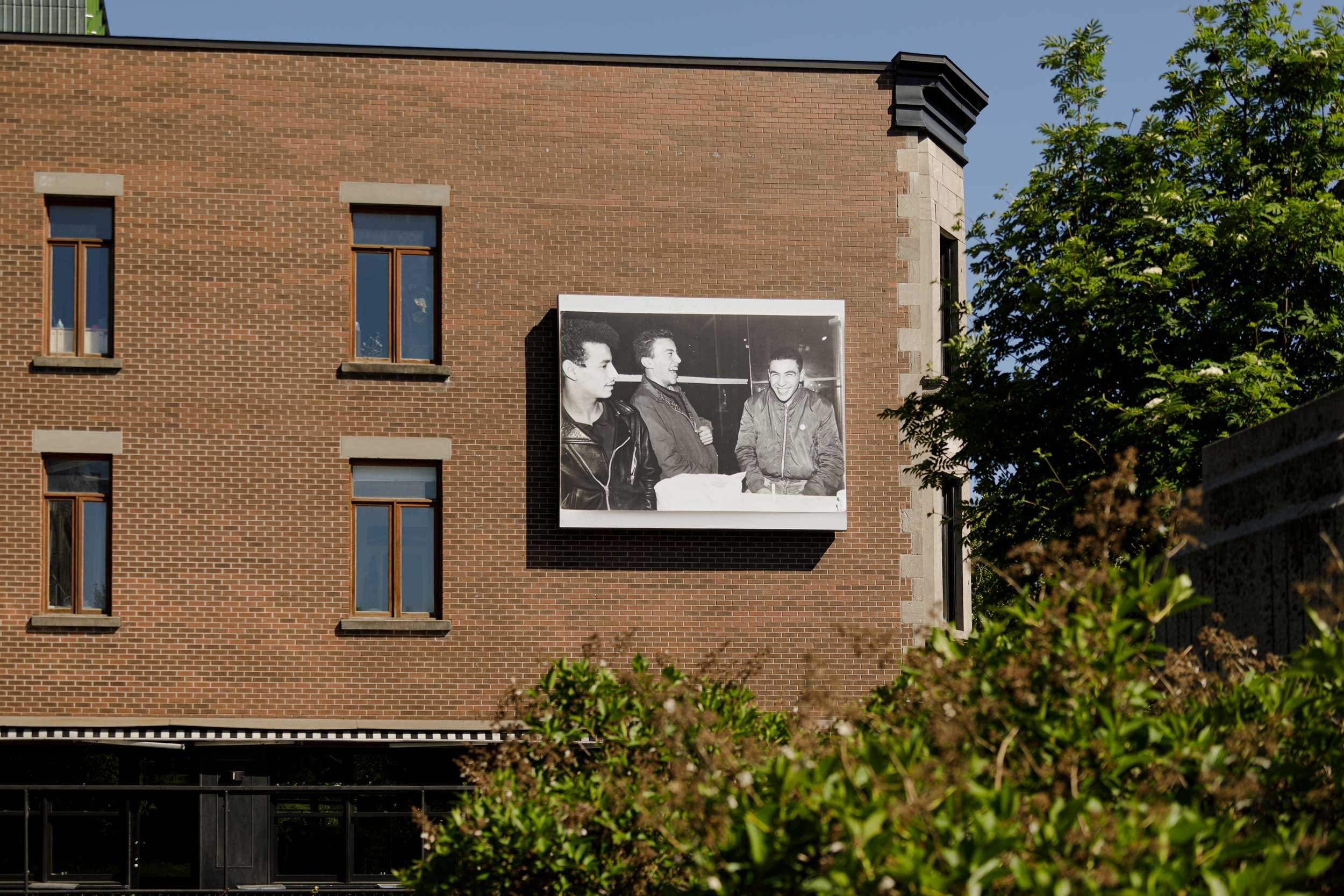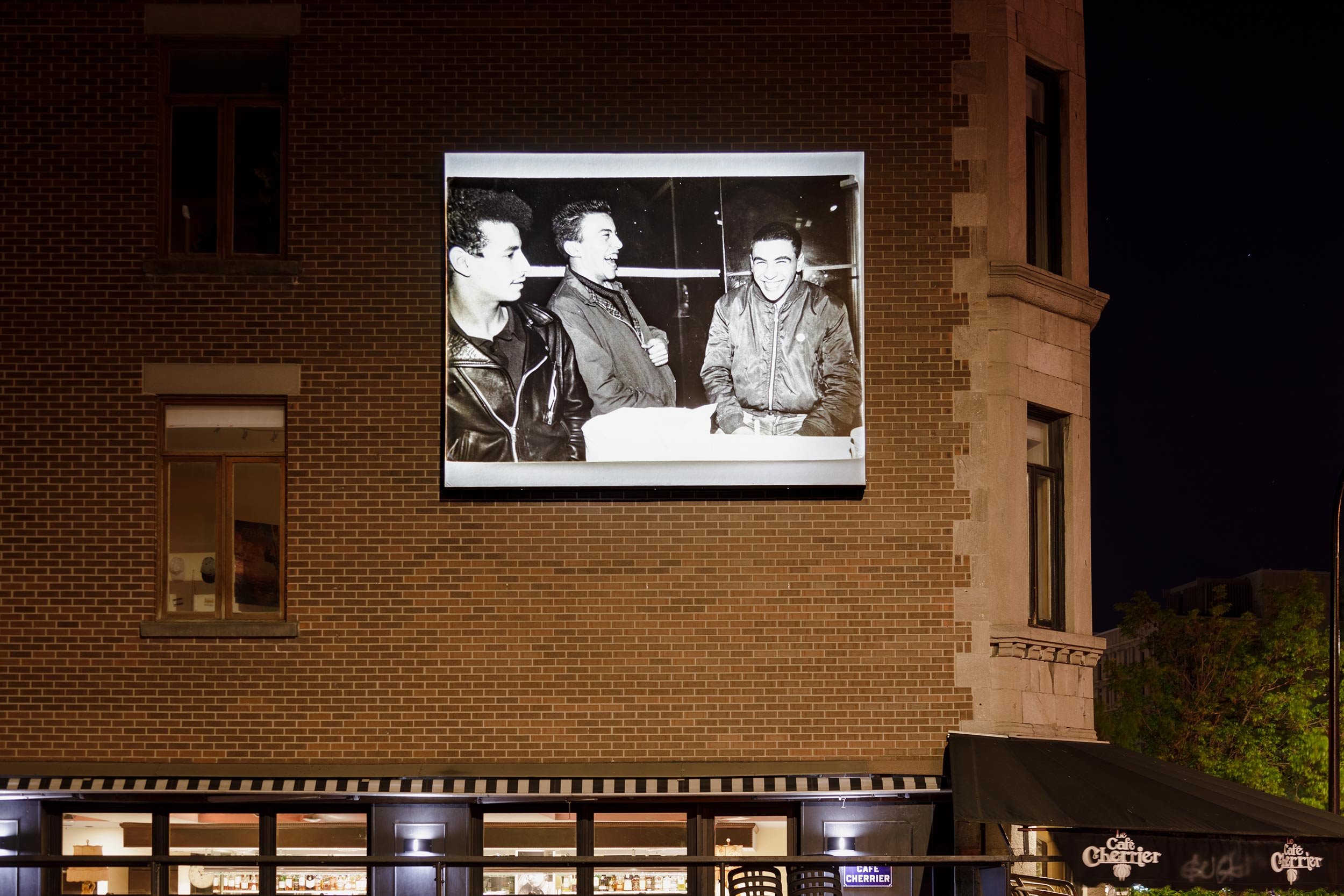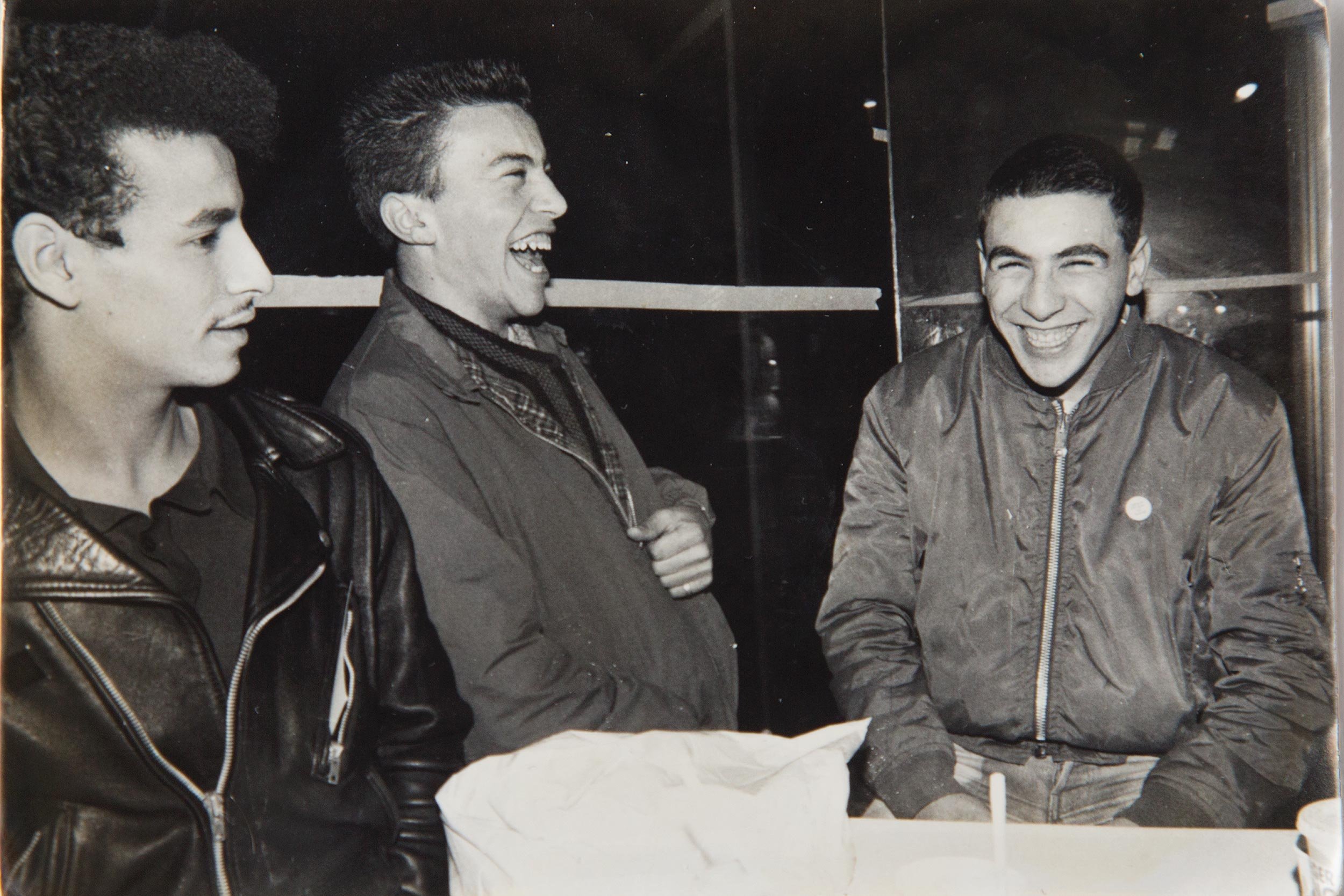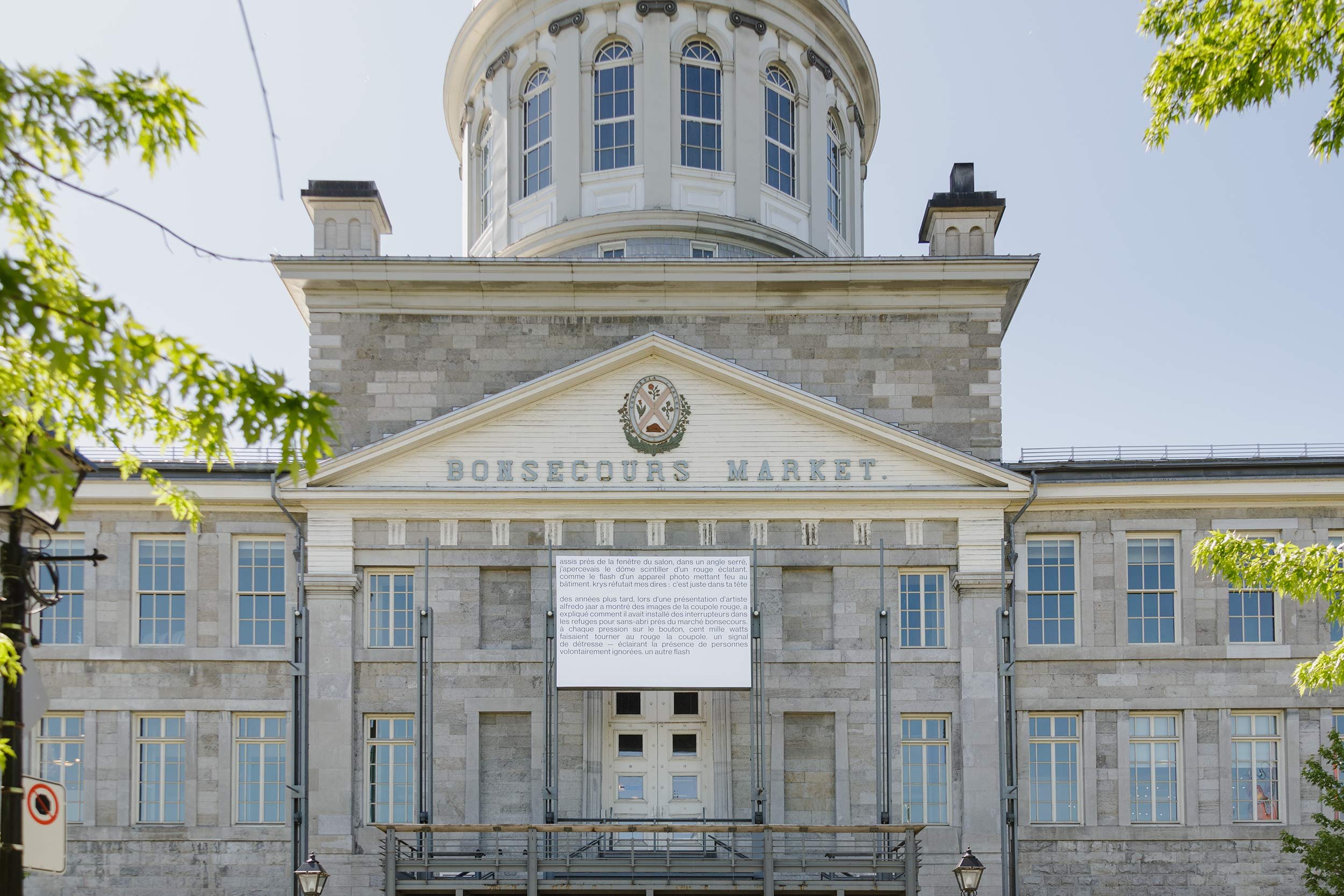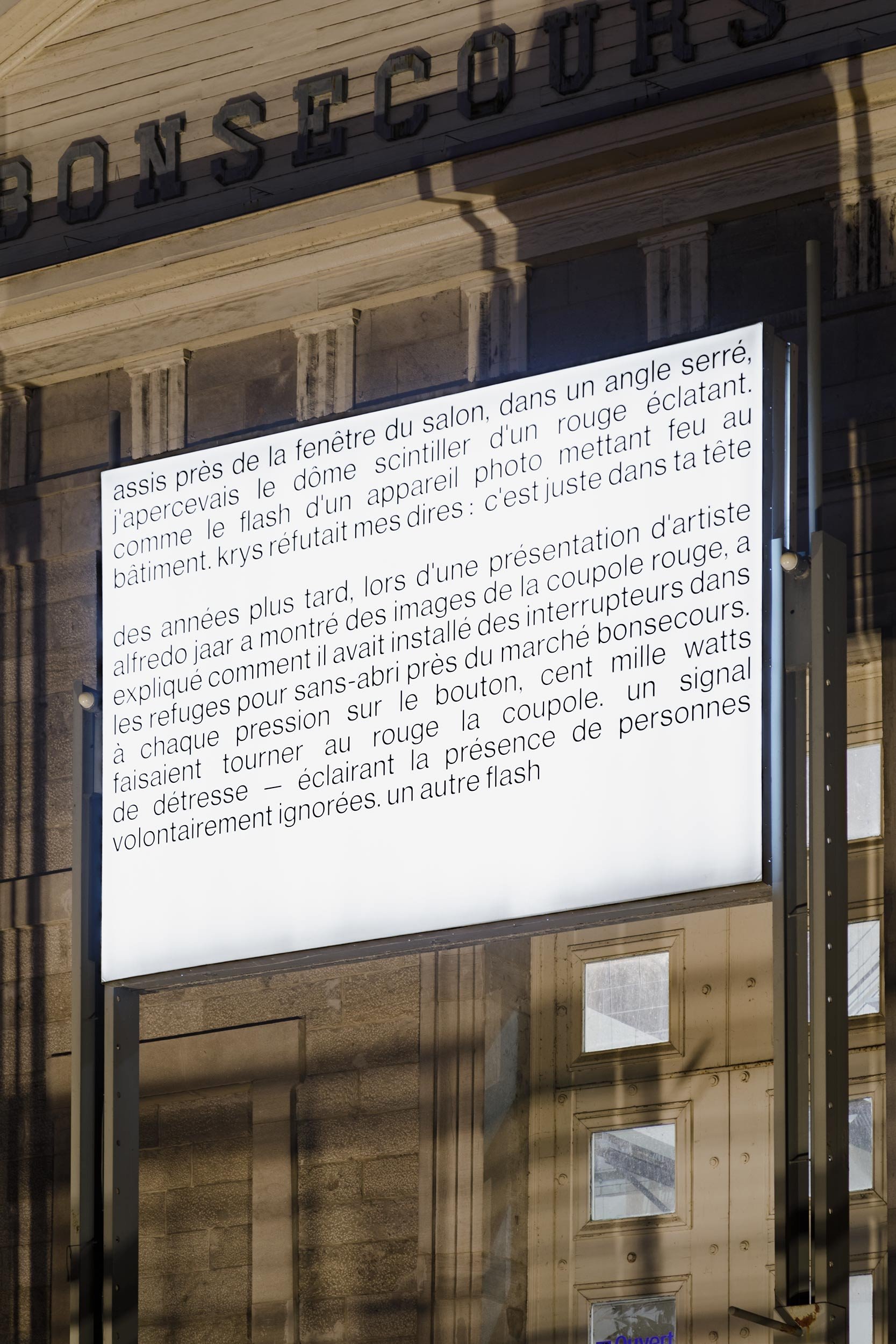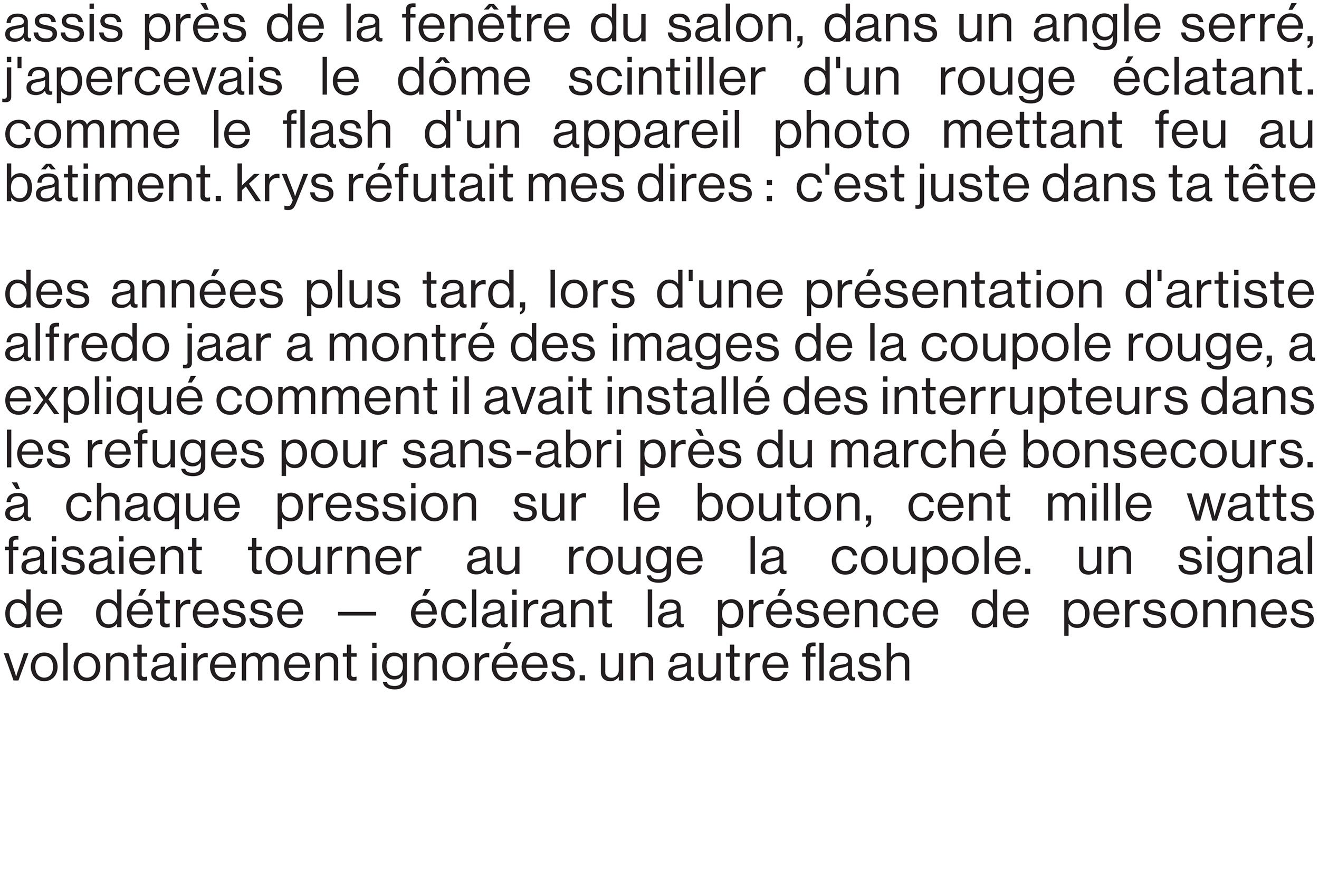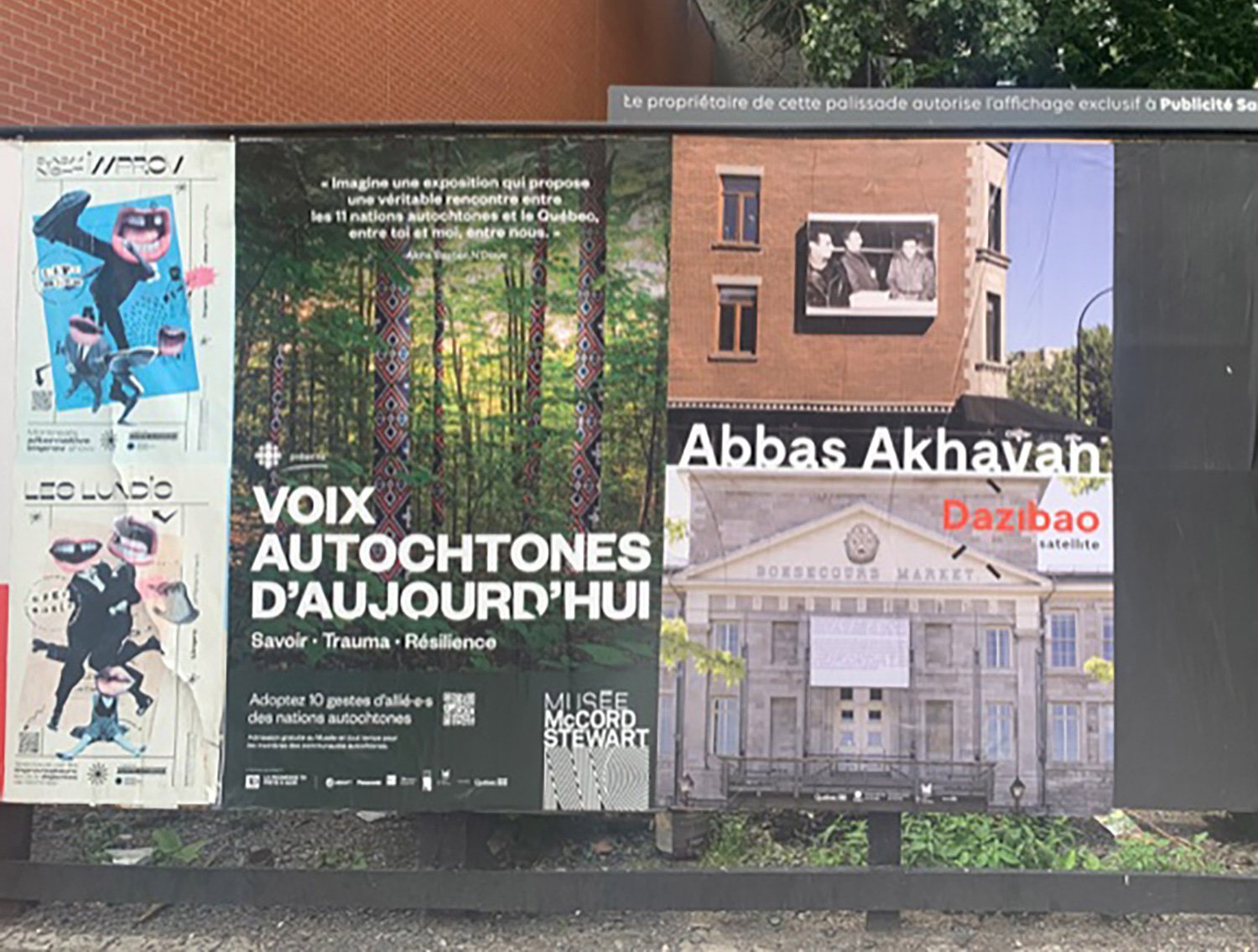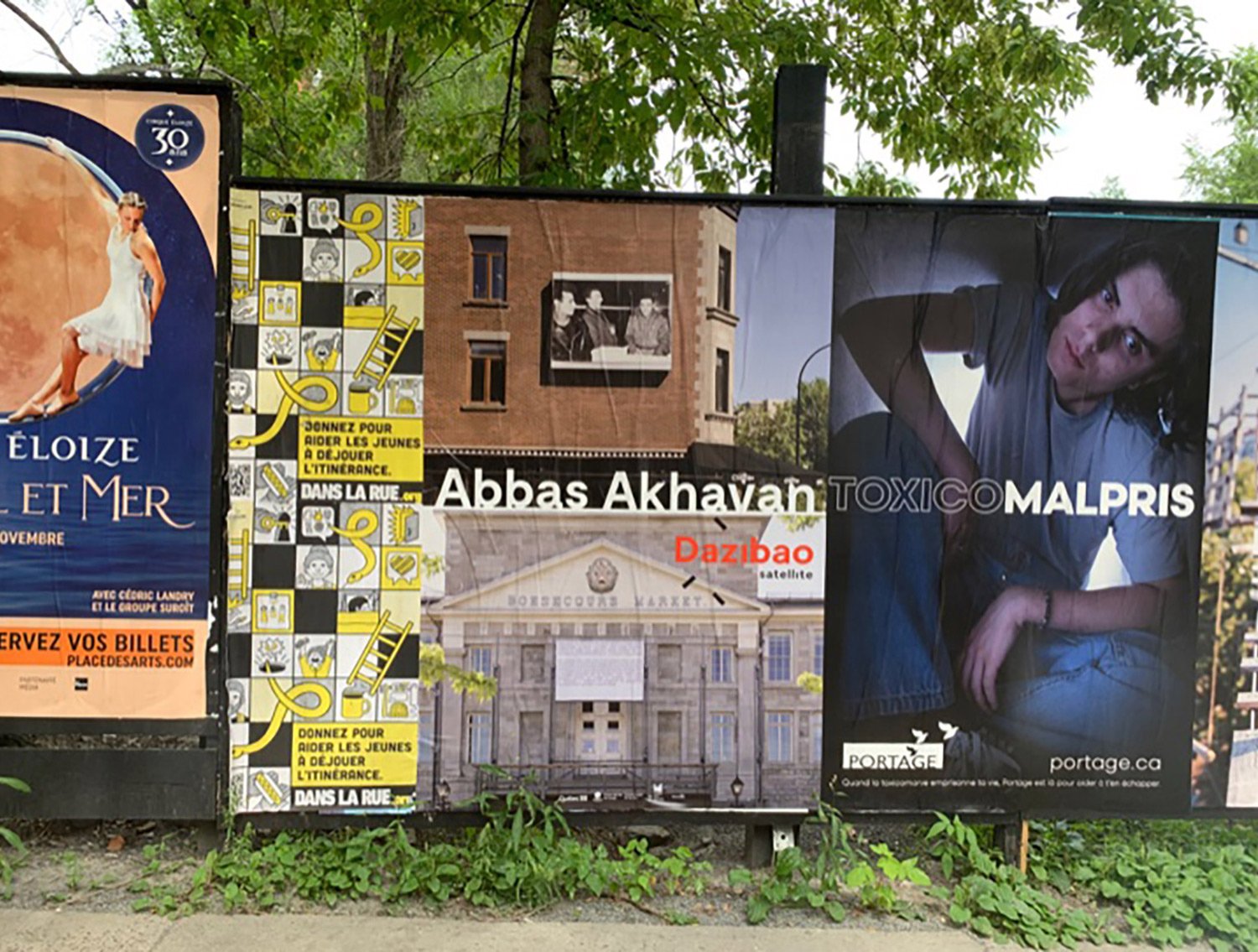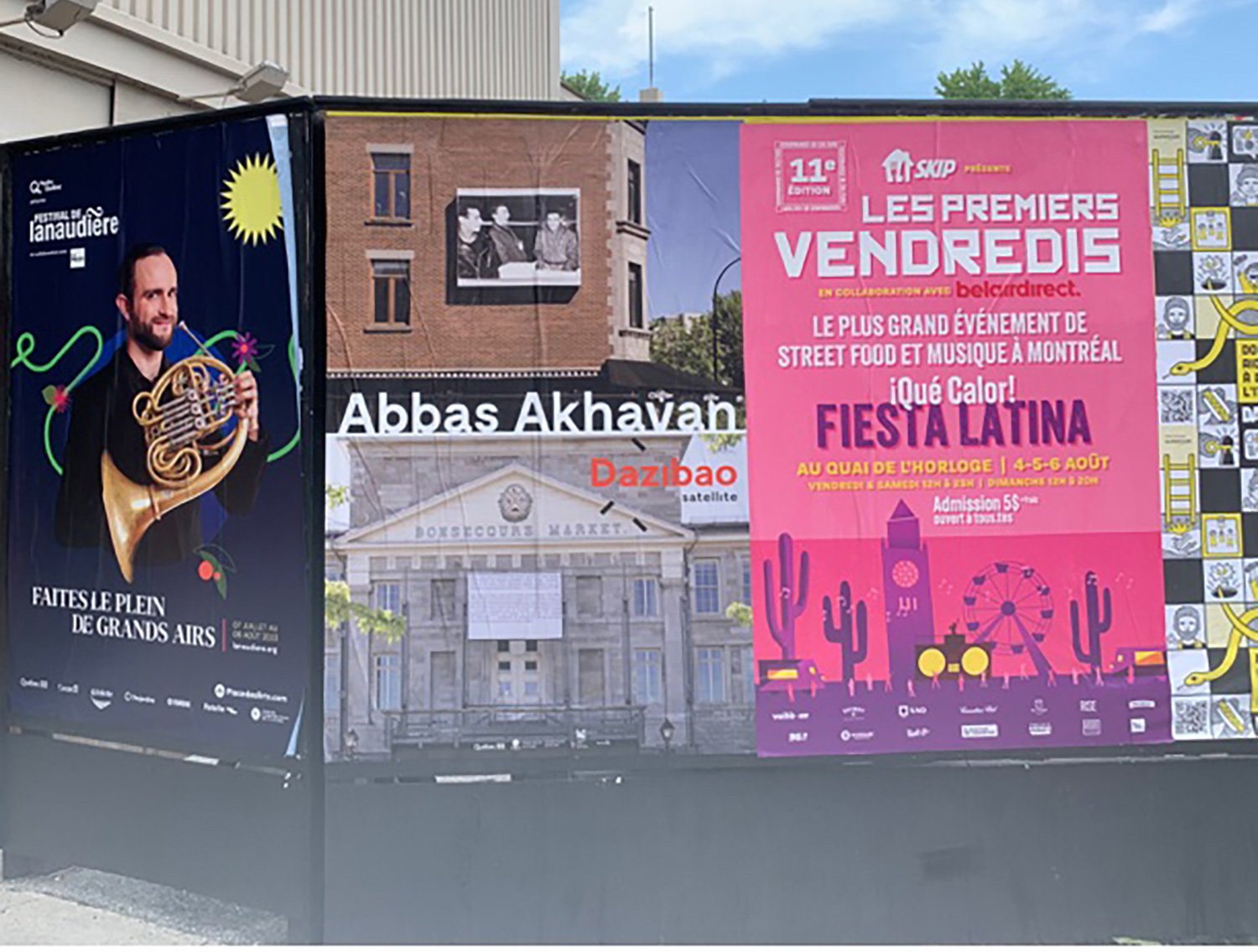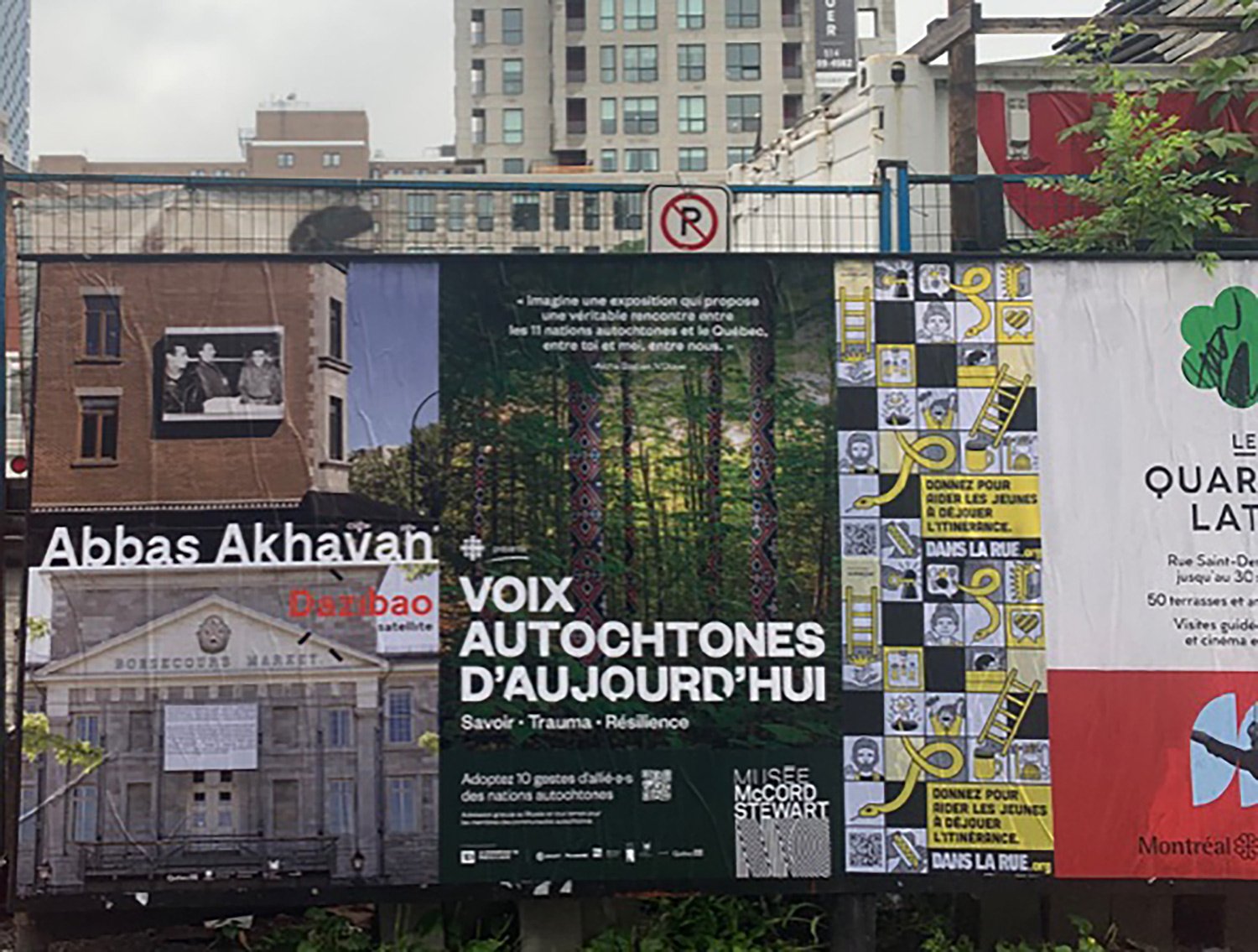Abbas Akhavan
May 19, 2023 —
“Dear DAZIBAO,
I am writing to propose a photo based project for your Café Cherrier façade on Saint-Denis street. When I moved to Montréal in 2002, I recall seeing your satellite spaces. They were confusing and fascinating. As a young art student, I
was uncertain about the billboards’ intent, unsure if I was looking at advertising or art. Those ambiguities in such a public space kept my attention for a long time — evidently sixteen plus years. In 2004, after completing my degree at Concordia University, my studies took me from Montréal to Vancouver, but I returned to Montréal as frequently as I could afford. In 2006, walking down Duluth street, just past Saint-Denis, I found a photograph on the ground. The black and white image shows three men sitting around a table. The back of the photo reads: “Omay, Djamal, Albert, hiver 1982”. This photograph has been hanging on my wall for many years but I have always wanted to return it to its original context. Thank you for considering my proposal.”
This edition of Dazibao satellite features two new works by Abbas Akhavan. While the artist has carefully responded to each site individually and separately, both works seem to conjugate ambiguities relating to public or domestic spaces and to function in elliptical reflections spanning the course of many years, eras even.
At Café Cherrier, Omay, Djamal, Albert. hiver 1982, features a photo that the artist found in 2006, on the ground, not far from the billboard in the Plateau Mont-Royal neighborhood. The title is borrowed from the inscription on the back of the photo, which captures what appears to be a convivial moment between three young men, but very little is known for certain. As of yet, these figures are unknown to the artist, making their large and public display a gesture of curious status and potential.
At the Bonsecours Market, Lights In The City 1999, is a textual piece responding to a work of the same name by artist Alfredo Jaar wherein the cupola of the Bonsecours would light up red when triggered by a button pressed by people entering various homeless shelters throughout Montreal. Akhavan’s text situates his contemplation of Jaar’s social and public artwork within the personal and domestic space of his own apartment but repeats out of necessity the political outcry that is all the more urgent in the context of Montreal’s housing crisis today.
Unfortunately, Abbas Akhavan's exhibition scheduled from April 24 to June 14, 2025 will be cancelled. We invite you to visit the wonderful works the artist has created for Dazibao satellite and to watch out for his forthcoming participation in the Venice Biennale.
The work of Abbas Akhavan ranges from site-specific ephemeral installations to drawing, video, sculpture and performance. The direction of his research has been deeply influenced by the specificity of the sites where he works: the architectures that house them, the economies that surround them, and the people that frequent them. The domestic sphere, which he proposes as a forked space between hospitality and hostility has been an ongoing area of study in his practice. More recent works have wandered onto spaces and species just outside the home: the garden, the backyard, and other domesticated landscapes.
Dazibao thanks the artist, the Café Cherrier (Jacques Boisseau) and the Bonsecours Market (Claude Pronovost) for their invaluable assistance as well as its advisory committee for their support.
Dazibao receives financial support from the Conseil des arts et des lettres du Québec, the Canada Council for the Arts, the Conseil des arts de Montréal, the ministère de la Culture et des Communications and the Ville de Montréal.
Dazibao acknowledges that it is located on the unceded territory of the Kanien'kehá: ka Nation and that Tiohtiá:ke / Montreal is historically known as a gathering place for many First Nations, and today, is home to a diverse population of Indigenous as well as other peoples. Guided by ethics of respect, listening, and awareness, Dazibao commits to a continued reflection regarding the deep-rooted and systemic challenges tied to accessibility and inclusivity in the arts and beyond, and endeavors to apply such reflections to all aspects of its activities and governance.

